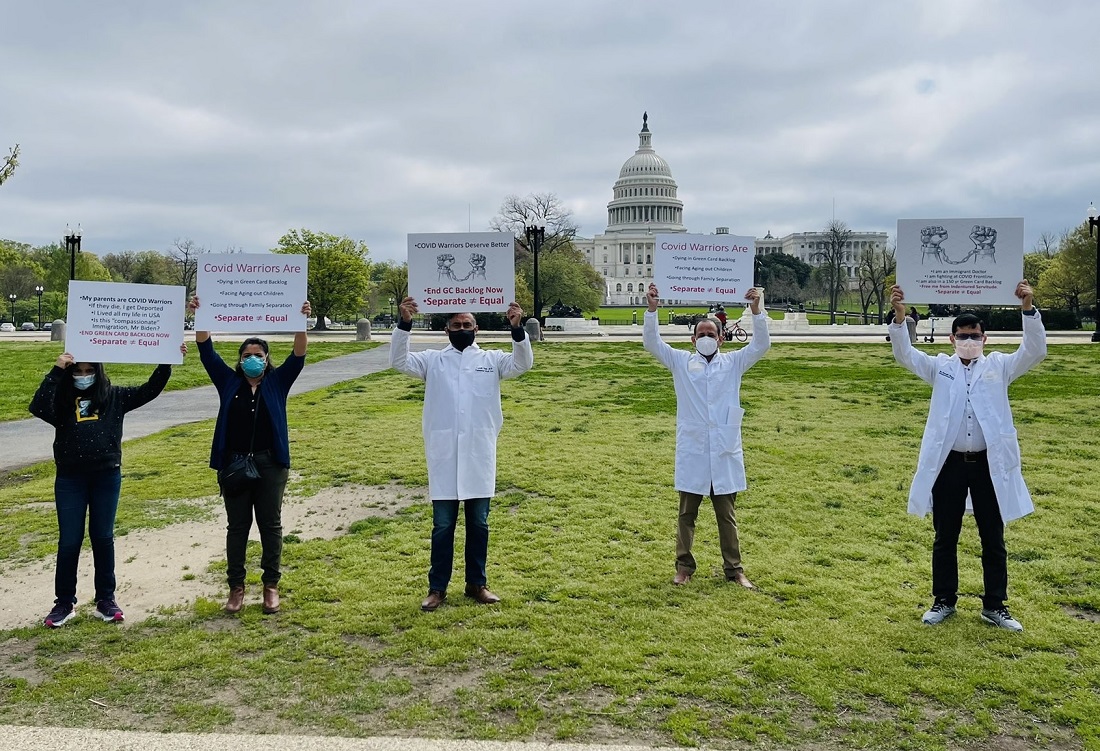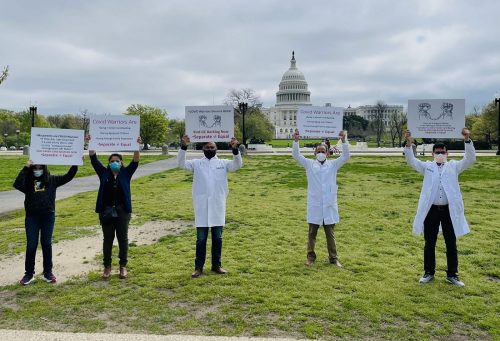 The Association of American Medical Colleges estimates a shortage of between 37,800 and 124,000 physicians by 2034
The Association of American Medical Colleges estimates a shortage of between 37,800 and 124,000 physicians by 2034
“Indian Doctors in the US are often offered jobs from hospitals across the country, experiencing a critical shortage of physicians. However being stuck in a green card backlog prevents them from helping out this acute shortage”
Dr Raj Karnatak, an intensivist who works in the critical care unit of a hospital in Wisconsin recently found himself in a situation that broke his heart.
A hospital in Iowa, was looking for an intensivist or a critical care physician and offered him a job. However, Dr Karnatak is on a work visa in the US and is currently stuck in a green card backlog.
US immigration policies do not allow him to offer any help to any facility other than the one he is employed in. The hospital, unable to find any qualified physician for the job, informed him that they may have to shut down their ICU facilities.
Read: Indian healthcare workers in green card backlog protest at Capitol Hill (April 12, 2021)
Talking to the American Bazaar, Dr Karnatak says, “We hear this almost every other day. So many hospitals across the country are in desperate need of good, qualified physicians. There are often compelling reasons involving patients who need doctors.”
But despite a willingness to help bridge this acute shortage of doctors in America, many qualified physicians such as Dr Karnatak are unable to offer any help or expertise.
Dr Karnatak explains, “I am not looking for a new job. I am very happy where I am currently, but physicians like me can help these facilities in desperate need at least once a week.”
“This would provide them support while they are finding a permanent physician,” he says. “When you are on a H-1B visa you can not take temporary assignments due to strict visa limitations.”
Indian-origin physicians account for at least 29.5% of the total physician population with India providing the largest number of international medical graduates to the US in absolute numbers.
According to statistics, every seventh doctor in the US is of Indian origin, but what nobody cares to report is that how many of them are stuck in a green card backlog that is claiming precious years from their personal and professional lives, lament many doctors.
READ: Hundreds of Coronavirus fighting Indian doctors stuck in green card backlog (March 18, 2020)
A vast number of these active practitioners are also stuck in decades long green card backlog which prevents them from freely offering their help in areas where it’s needed.
Dr Karnatak adds, “Even at the organization where I work, if my employer needs my help at any other sites, he needs to obtain new work authorization from the USCIS before I can go and help.”
In certain fields such as medicine, limitations such as these very often mean that a needy patient is denied the care he could have otherwise received.
An H-1B visa holder according to immigration policies needs to get authorization for even a slight change in job description by the USCIS or else they risk losing their jobs.
Obtaining a green card or permanent residency in the US, would help solve this challenge for many qualified physicians. However, hundreds of thousands of such physicians particularly from India, who have applied for a green card, are stuck in a backlog spanning decades and hence find themselves in restrictive professional situations on a daily basis.
During the pandemic, the reality of this situation came to the fore. Dr Karnatak says, “I am trained both in critical care and infectious diseases.”
Read: Indian-American health workers in Green Card backlog protest at US Capitol (March 18, 2021)
“My employer hired me as a critical care physician but during the peak of pandemic they needed my help to pick up additional work as an infectious disease specialist but we couldn’t do that immediately due to strict work limitations,” he said. “It took us months to take authorization and help in that crisis.”
Keeping highly trained individuals in a backlog restricts their ability to serve the community. Strict visa restrictions also limit the ability of a large number of Indian doctors trained in multiple specialties currently in line for obtaining H-1B to help out. In the US, the rural areas are often the worst hit because of this shortage.
READ: Indian American health workers protest green card backlog (March 18, 2021)
READ: Covid-19: US bill to fast track green cards for healthcare workers (May 9, 2020)
Read: Indian healthcare worker’s requests to expedite work permit rejected (February 14, 2022)
Read: USCIS to expedite EAD renewals for healthcare workers (December 29, 2021)



